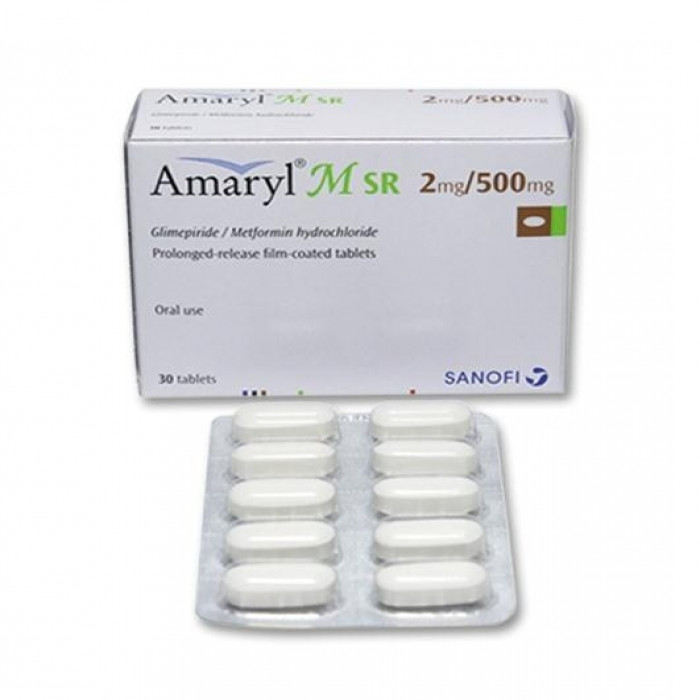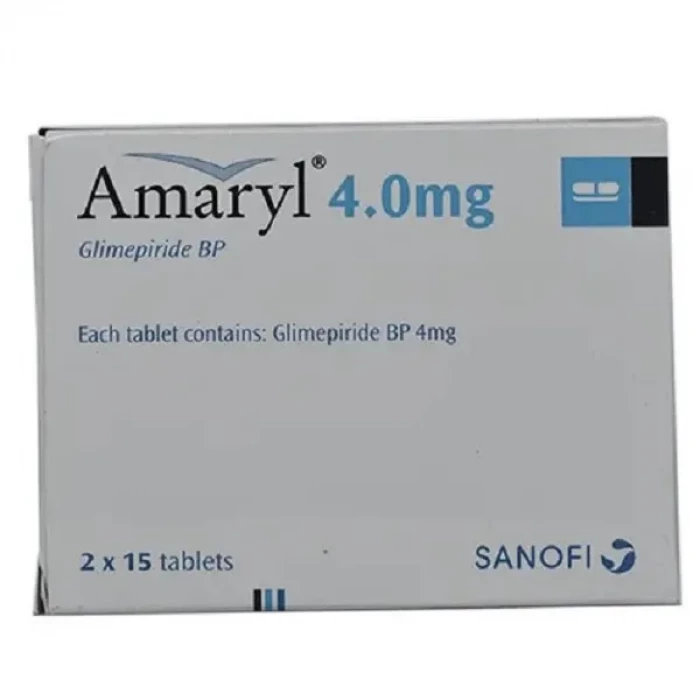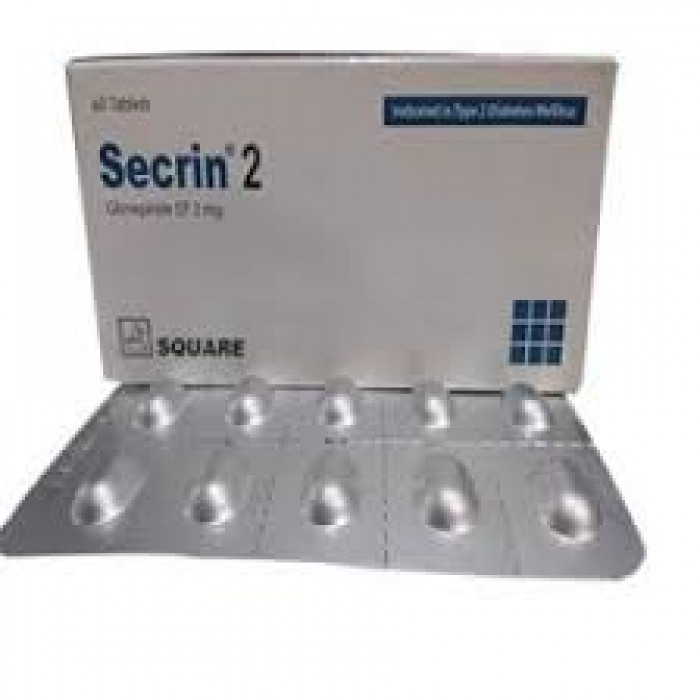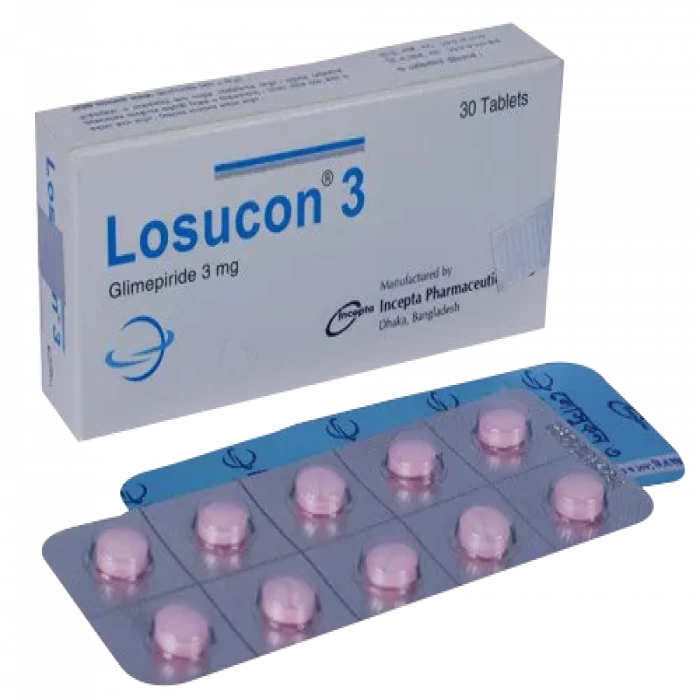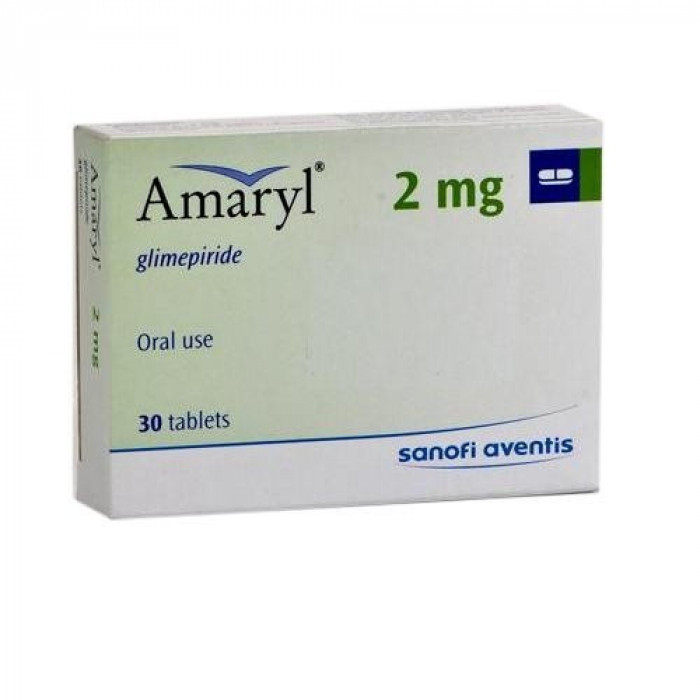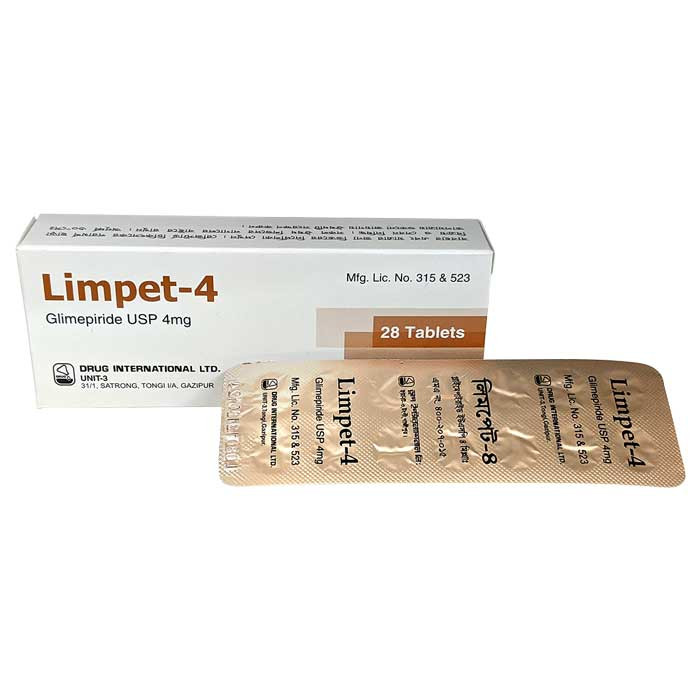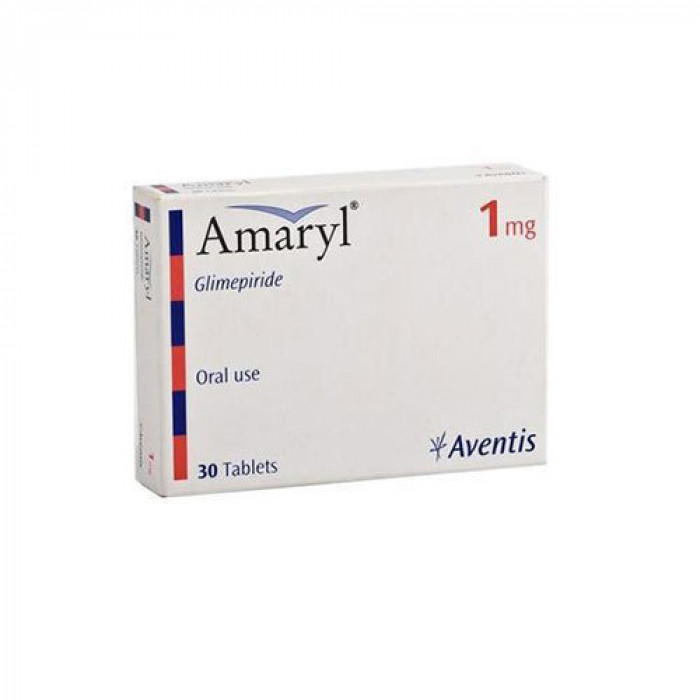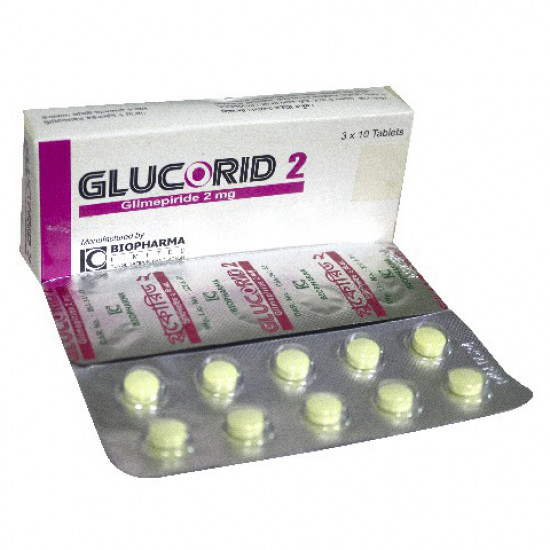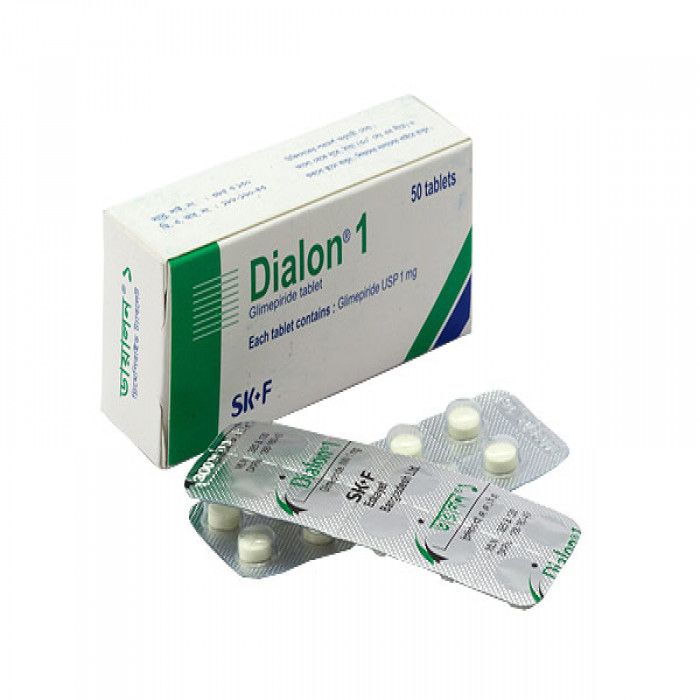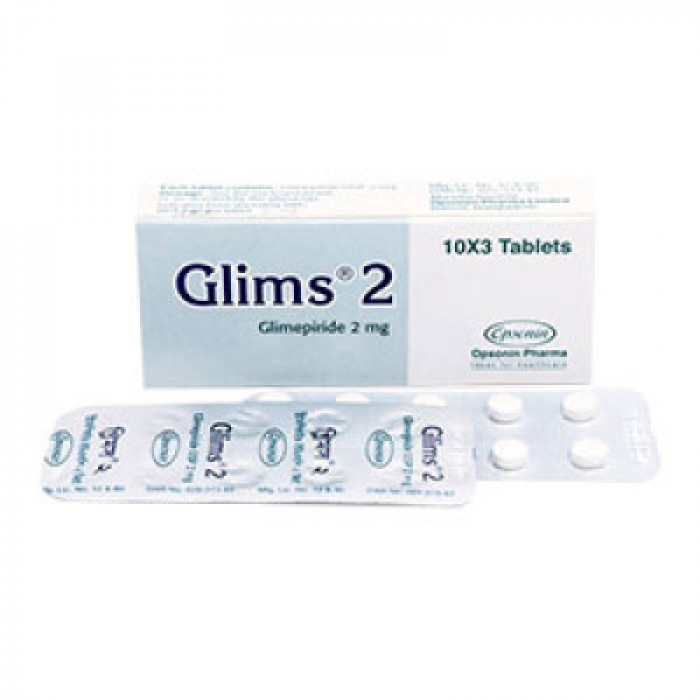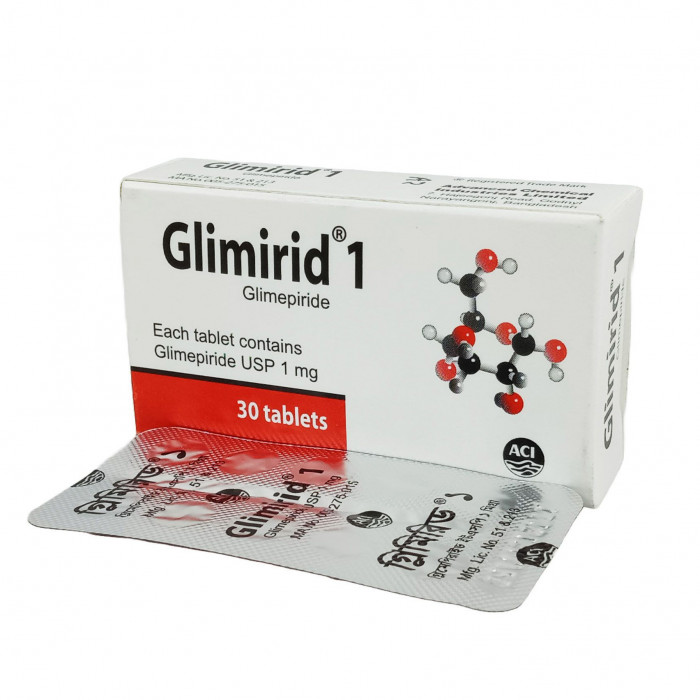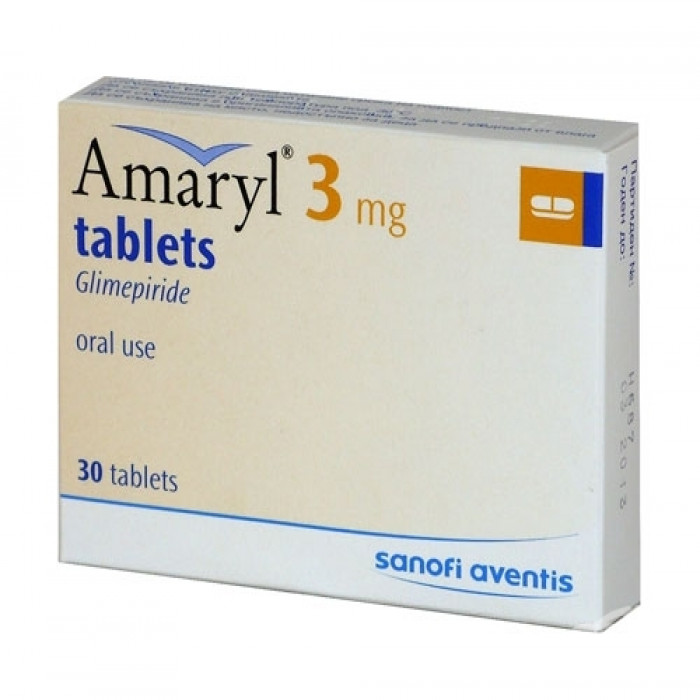
✔ 100% Authentic Product
👁️ Currently Viewing 2506
Amaryl 3mg Tablet is used in the treatment of type 2 diabetes mellitus when diet and exercise fail to control your blood sugar levels.
Discount
Price: ৳ 237
MRP:
৳
249
5%
Off

100% Genuine Products, Guaranteed

Safe & Secure Payments, Always

Fast, Secure & Efficient Delivery

Proper Packaging
 Cash on Delivery - All over Bangladesh
Cash on Delivery - All over Bangladesh Regular Delivery - 12-24 Hours, Dhaka City* Charge Tk.39-59
Regular Delivery - 12-24 Hours, Dhaka City* Charge Tk.39-59 Regular Delivery - 24-48 Hours, Other Cities* Charge Tk.99-110
Regular Delivery - 24-48 Hours, Other Cities* Charge Tk.99-110
🌙 রমযান অফার 🌙
 ফ্রি ডেলিভারিঃ - ৭৯৯ টাকা+ অর্ডারে, ঢাকা
শহরে
ফ্রি ডেলিভারিঃ - ৭৯৯ টাকা+ অর্ডারে, ঢাকা
শহরে ফ্রি ডেলিভারিঃ - ২৭৯৯ টাকা+ অর্ডারে, ঢাকার
বাহিরে
ফ্রি ডেলিভারিঃ - ২৭৯৯ টাকা+ অর্ডারে, ঢাকার
বাহিরে
📲 মোবাইল অ্যাপ অর্ডারে সাশ্রয় বেশী
-
Google Play Store থেকে ডাউনলোড
-
Apple Store থেকে ডাউনলোড
100% Genuine Products, Guaranteed
Safe & Secure Payments, Always
Fast, Secure & Efficient Delivery
Proper Packaging
 Cash on Delivery - All over Bangladesh
Cash on Delivery - All over Bangladesh Regular Delivery - 12-24 Hours, Dhaka City* Charge Tk.39-59
Regular Delivery - 12-24 Hours, Dhaka City* Charge Tk.39-59 Regular Delivery - 24-48 Hours, Other Cities* Charge Tk.99-110
Regular Delivery - 24-48 Hours, Other Cities* Charge Tk.99-110 ফ্রি ডেলিভারিঃ - ৭৯৯ টাকা+ অর্ডারে, ঢাকা
শহরে
ফ্রি ডেলিভারিঃ - ৭৯৯ টাকা+ অর্ডারে, ঢাকা
শহরে ফ্রি ডেলিভারিঃ - ২৭৯৯ টাকা+ অর্ডারে, ঢাকার
বাহিরে
ফ্রি ডেলিভারিঃ - ২৭৯৯ টাকা+ অর্ডারে, ঢাকার
বাহিরে- Google Play Store থেকে ডাউনলোড
- Apple Store থেকে ডাউনলোড
🌙 রমযান অফার 🌙
📲 মোবাইল অ্যাপ অর্ডারে সাশ্রয় বেশী
✅ Description:
Glimepiride, a sulfonylurea antidiabetic medicine, is employed to manage type 2 diabetes in conjunction with diet and exercise. This drug enhances insulin release from the pancreas, reduces liver glucose production, and improves insulin sensitivity in peripheral tissues. It can be used alongside insulin or other antidiabetic agents when blood sugar remains uncontrolled through lifestyle measures alone.
It's crucial to communicate any allergies, kidney or liver history, and medication usage with the doctor before starting Glimepiride. Sun sensitivity and alcohol intake should be limited during treatment. Pregnant women should avoid this medication.
Glimepiride should be taken as a 1mg tablet daily, stored at controlled temperatures away from heat and moisture. Overdose symptoms encompass low blood sugar signs. Sulfonylurea intoxication may lead to hypoglycemia, managed with glucose administration.
Remember, Glimepiride is not a cure for diabetes, but part of a comprehensive treatment plan involving diet, medication, and exercise. This information is based on the medicine's content and its effects may vary, so consulting a Diabetologist before use is recommended.
Safety Advices

Alcohol
UNSAFE
Avoid consumption of alcohol while taking Amaryl 3mg Tablet as it may increase the risk of unwanted side effects.

Pregnancy
CONSULT YOUR DOCTOR
Avoid using Amaryl 3mg Tablet during pregnancy. Notify your doctor if you are pregnant, suspect pregnancy, or have pregnancy plans. Your doctor might consider transitioning you to insulin therapy.

Breastfeeding
CONSULT YOUR DOCTOR
Glimepiride can pass into breast milk and should be avoided while breastfeeding. If you're taking Amaryl 3mg Tablets (under a doctor's prescription) and breastfeeding, closely observe your baby for indications of low blood glucose, such as restlessness, drowsiness, feeding difficulties, seizures, or low body temperature.

Driving
CAUTION
Do not drive or operate any heavy tools or machines if your ability is affected by Amaryl 3mg Tablet.

Kidney
CONSULT YOUR DOCTOR
Amaryl 3mg Tablet is cautioned against in individuals with severe kidney issues and should be used cautiously in those with other kidney problems. Therefore, seek advice from your doctor before using it.

Liver
CONSULT YOUR DOCTOR
Amaryl 3mg Tablet is not recommended for use in patients with severe liver problems and should be used cautiously in patients with other liver issues. Hence, consult your doctor prior to taking it.
✔️ Uses of Amaryl 3mg Tablet
- Type 2 Diabetes
- Hyperglycemia
✔️ How does Amaryl 3mg Tablet work?
This drug lowers blood glucose by stimulating the release of insulin from pancreatic beta cells.
✔️ Side Effects of Amaryl 3mg Tablet
- Low blood sugar levels (hypoglycemia)
- Dizziness
- Headache
- Nausea
- Flu-like symptoms
- Allergic skin reaction
- Anaemia
- Jaundice
- Weight gain
✔️ Quick Suggestions:
- Amaryl 3mg Tablet is an anti-diabetic medicine. It is used for the management of type 2 diabetes mellitus by lowering blood sugar levels. It contains glimepiride as the active ingredient.
- It is recommended to take this tablet at the same time every day to maintain consistent levels of the medication in your system for optimal results.
- Along with taking Amaryl 3mg Tablet, it is essential that you do certain lifestyle modifications like exercising regularly, walking, avoiding smoking, and drinking alcohol.
- It is also advised to have a balanced diet with adequate fruits and vegetables for good control of your blood sugar levels.
- Keep a check on your blood sugar levels regularly.
- Before starting Amaryl 3mg Tablet, inform your doctor if you are pregnant, planning a pregnancy, or breastfeeding and about your detailed medical history.
- Weight gain, low blood sugar, hunger, dizziness, and nausea/vomiting may occur in some individuals with the use of this medicine. Inform your doctor if these effects bother you or do not go away.
- You should avoid driving or operating heavy machinery if you experience drowsiness, unconsciousness, or confusion after using Amaryl 3mg Tablet.
- Talk to your doctor if you have kidney or liver disease.
- If you miss a dose of Amaryl 3mg Tablet, take it as soon as you remember. If it is close to the time for your next dose, skip the missed dose and take the next dose at the regular time.
✔️ Indication
Glimepiride is prescribed as an add-on to dietary measures to reduce blood glucose levels in individuals with type 2 diabetes (non-insulin-dependent diabetes mellitus) when diet, exercise, and weight loss aren't sufficient to control hyperglycemia. Additionally, it's used in combination with Insulin to lower blood glucose in cases where diet, exercise, or oral hypoglycemic agents alone aren't effective.
✔️ Pharmacology
Glimepiride enhances insulin secretion from pancreatic β-cells, decreases liver glucose production, and improves insulin sensitivity in peripheral tissues.
✔️ Dosage & Administration of Amaryl 3mg Tablet
Adult Dose:
- Oral treatment for Type 2 diabetes mellitus
- Initially, 1-2 mg daily; may increase by 1-2 mg every 1-2 weeks
- Maintenance: 4 mg daily; Max: 6 mg daily
- Elderly: Start with 1 mg once daily
Hepatic Impairment:
- Severe impairment: Avoid
Child Dose:
- Safety and efficacy not established
Renal Dose:
- Renal impairment: Start with 1 mg daily; adjust based on fasting blood glucose levels
- Severe renal impairment: Avoid
Administration:
- Preferably after meals, swallowed with water
- Do not crush or chew
- Follow your doctor's guidance on dose and duration
- Do not stop without a doctor's advice
✔️ Interaction
Mixing medicine with certain foods, beverages, or other drugs can lead to interactions, potentially impacting effectiveness and safety.
- Alcohol Interaction: Combining with alcohol is unsafe. Consult your doctor before consumption.
- Medicine Interactions: Avoid concomitant use with certain drugs including H2-antagonists, anticoagulants, beta-blockers, fluconazole, and more.
- Food Interaction: Grapefruit juice consumption should be avoided while on Gala G 4 MG Tablet. Report symptoms like muscle pain, fever, and nausea to the doctor.
✔️ Contraindications
Glimepiride isn't suitable for treating insulin-dependent (type-I) diabetes mellitus or diabetic pre-coma/coma. Avoid if allergic to Glimepiride or other sulfonylureas.
✔️ Pregnancy & Lactation
Pregnancy Warning: Glimepiride is unsuitable during pregnancy. Switching to Insulin is advised. Inform your doctor if pregnancy is planned; a transition to Insulin might be needed.
Lactation Caution: Glimepiride in breast milk can harm the baby. Avoid it while breastfeeding. Consider switching to an alternative or discontinuing breastfeeding altogether.
✔️ Precautions & Warnings
Hypoglycemia Risk: Early treatment monitoring is crucial to manage low blood sugar risks during the initial weeks of Glimepiride use. Dosage adjustments may be necessary for this risk.
Pediatric & Geriatric Use: Safety and effectiveness in kids uncertain. The elderly generally respond well, but some may need special consideration due to sensitivity. Renal function should be considered, especially in elderly patients with decreased kidney function.
Renal & Hepatic Insufficiency: Kidney patients start at 1 mg dose, adjust based on fasting blood glucose levels. No studies on liver patients. Side effects include hypoglycemia, dizziness, weakness, headache, and nausea.
Overdose Impact: Accidental or intentional overdose can lead to severe, prolonged hypoglycemia, even fatality. Seek immediate medical help. In case of hypoglycemia, consume sugar promptly, preferably glucose.
✔️ Storage Conditions
Amaryl 3mg Tablets do not require any special storage conditions. Try to keep it out of the reach of children and pets.
⚠️Disclaimer:
At ePharma, we’re committed to providing accurate and accessible health information. However, all content is intended for informational purposes only and should not replace medical advice from a qualified physician. Please consult your healthcare provider for personalized guidance. We aim to support, not substitute, the doctor-patient relationship.




